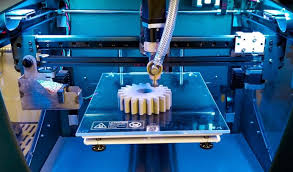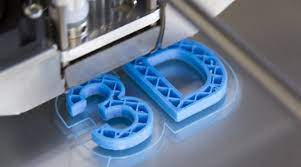Researchers at Stanford College in the United States have established a brand-new high-speed micro-scale 3D printing innovation – roll-to-roll continuous fluid interface production (r2rCLIP), which can print 1 million incredibly fine and personalized micro-particles each day. This accomplishment is expected to promote the growth of biomedicine and other areas. The appropriate paper was released in the latest concern of “Nature” on the 13th.
(3d printer)
Microparticles produced by 3D printing technology are extensively used in fields such as drug and vaccine shipment, microelectronics, microfluidics, and complex production. Nevertheless, mass personalization of such bits is extremely challenging.
r2rCLIP is based upon the constant liquid interface production (CLIP) publishing modern technology created by Stanford College’s DiSimone Lab in 2015. CLIP makes use of ultraviolet light to solidify the resin rapidly right into the preferred form.
The leader of the current research, Jason Kronenfeld of the Disimone Lab, clarified that they first fed an item of film right into a CLIP printer. At the printer, thousands of shapes are at the same time published onto the film; the system after that continues to clean, cure, and get rid of the forms, every one of which can be tailored to the preferred form and material; ultimately, the movie is rolled up. The whole procedure, hence the name roll-to-roll CLIP, allows mass production of distinctly formed particles smaller sized than the width of a human hair.
(metal powder 3d printing)
Scientists said that prior to the advent of r2rCLIP, if you intended to print a set of large fragments, you required to process it by hand, and the procedure advanced slowly. Now, r2rCLIP can produce up to 1 million fragments per day at extraordinary speeds. With brand-new modern technologies, they can currently swiftly create microparticles with more complex forms making use of a variety of products, such as porcelains and hydrogels, to develop tough and soft particles. The hard particles can be used in microelectronics producing, while the soft particles can be made use of in drug shipment within the body.
The research study team pointed out that existing 3D printing technology needs to discover an equilibrium between resolution and rate. Some 3D printing innovations can generate smaller nanoscale particles yet at a slower rate; some 3D printing modern technologies can manufacture huge items such as shoes, house things, machine components, football safety helmets, dentures, and listening devices, but they can not publish Great microparticles. The new method locates a balance between making rate and fine range.
About Kmpass
Kmpass is committed to technology development, applications of nanotechnology and new material industries, with professional experiencein the nano-technology research and development and the application of materials.especially for 3d printing powder, 3d printing metal powder, 3d printing powder supplier, 3d printing for titanium powder. As a leading nano-technology development and product applications additive manufacturer, Kmpass dominates the markets. If you need high quality titanium metal, please feel free to contact us.
Inquiry us

